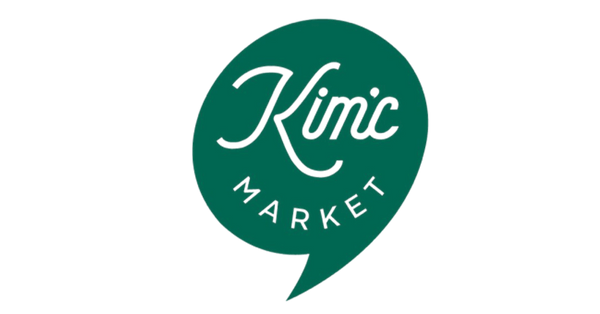One of the rising stars in the culinary world that Kim’C Market has been collaborating with is chef Junsoo Bae of SSAL, a one Michelin-starred restaurant based in San Francisco. A native of South Korea shares his experience at the world most renowned restaurants and his cooking philosophy.
When and why did you decide to become a chef?
Looking back, I think it was during my middle school days. As a young boy, I always loved eating delicious foods. I believed that becoming a chef would allow me to live a life full of good food and joy, so I decided to pursue that path.

Your restaurant SSAL has consistently been loved since receiving a Michelin star with its theme of ‘modern Korean cuisine.’ Could you share your pre-SSAL career with our readers?
In 2008, I came to the U.S. and studied at The Culinary Institute of America in Hyde Park, New York, from 2009 to 2012. I started my internship at Blue Hill at Stone Barns and gained experience at places like Noma in Copenhagen and Per Se in New York City. I also worked as a sous chef at Gramercy Tavern in NYC. After moving to the West Coast, I worked at Meadowood in Napa Valley. Then, in 2020, I opened SSAL in San Francisco.

Could you explain the reason behind naming your restaurant SSAL, and what ‘modern Korean cuisine’ means to you? We are also curious how you incorporate traditional Korean cuisine into your modern culinary creations.
The reason I named the restaurant "SSAL" is simple: Ssal is Korean for rice, and I am the grandson of a rice shop owner. No one in my family had a career in the restaurant or food industry, but I have fond memories of playing with rice at my grandfather's shop when I was young. The name SSAL was inspired by those memories. Additionally, rice is one of the most important elements representing Korean cuisine.
How would you describe your overall cooking philosophy?My overall cooking philosophy? Well, as you can tell from my career, I’ve mostly worked at places that focus on eco-friendly and locally sourced seasonal ingredients. I never try to go against the seasons. My philosophy is all about cooking with what’s in season, tasting the ingredients, chatting with farmers, and just listening to the sounds of nature.

For the past five years since opening the restaurant, I haven't missed a single week of visiting the farmers' market personally. Farmers who grow excellent ingredients are my source of inspiration for cooking. I believe they are more important and more skilled than I am when it comes to good cuisine. My role is simply to present the ingredients they grow in a way that people can enjoy. For example, recently, our peach farmer experienced hail a week before harvest, leaving most of the peaches badly blemished. This inspired me to create shaved ice and ice cream with those peaches, which are now featured on our dessert menu. Ultimately, it's a big circle. Sustainability can only be achieved if the producers, chefs, and customers are all satisfied.
When was the happiest moment in your culinary career?The moment I received my first Michelin star.
If today were the last day on Earth, what dish would you want to eat? Why that dish?Chefs always get to eat amazing food with the best ingredients. But if it were my last day, I’d want a simple bowl of soybean paste soup with radish greens made by my wife. It’s a humble dish, but it reminds me of all the hard work and early mornings she puts into making it.

What is your favorite food? Why?
When I was a kid, my favorite foods were chicken and galbi (Korean BBQ ribs). I always wanted them because I couldn’t have them all the time. These days, I’m really into jajangmyeon (black bean noodles) and I eat it whenever I get the chance. Living in the U.S., it’s not as easy to find as it is in Korea, so I think that makes me crave it even more.
What are the three kitchen tools that you can’t cook without? Why them?A knife, a cutting board, and a charcoal grill—these three tools are all I need to cook most dishes. With them, I believe I can prepare just about anything.
What do you care most about when choosing your ingredients?When I pick ingredients, I think about a few things. Am I using them responsibly without any waste? Can I really make this ingredient shine? Would the farmer who grew it be proud of what I do with it? These questions are what guide me in the kitchen.

Korean cuisine definitely has its challenges. I think we need to get more organized with it, given its deep history and tradition. By developing a structured approach, we can better train new talent and establish standardized terminology for ingredients that everyone in the industry can use.”
Do you have any goals or plans you'd like to achieve in the near future?My goal is to preserve the essence of SSAL, ensuring that I can continue engaging with our guests in the same authentic and consistent manner.

Photo credit: Jesse Evan Cudworth


